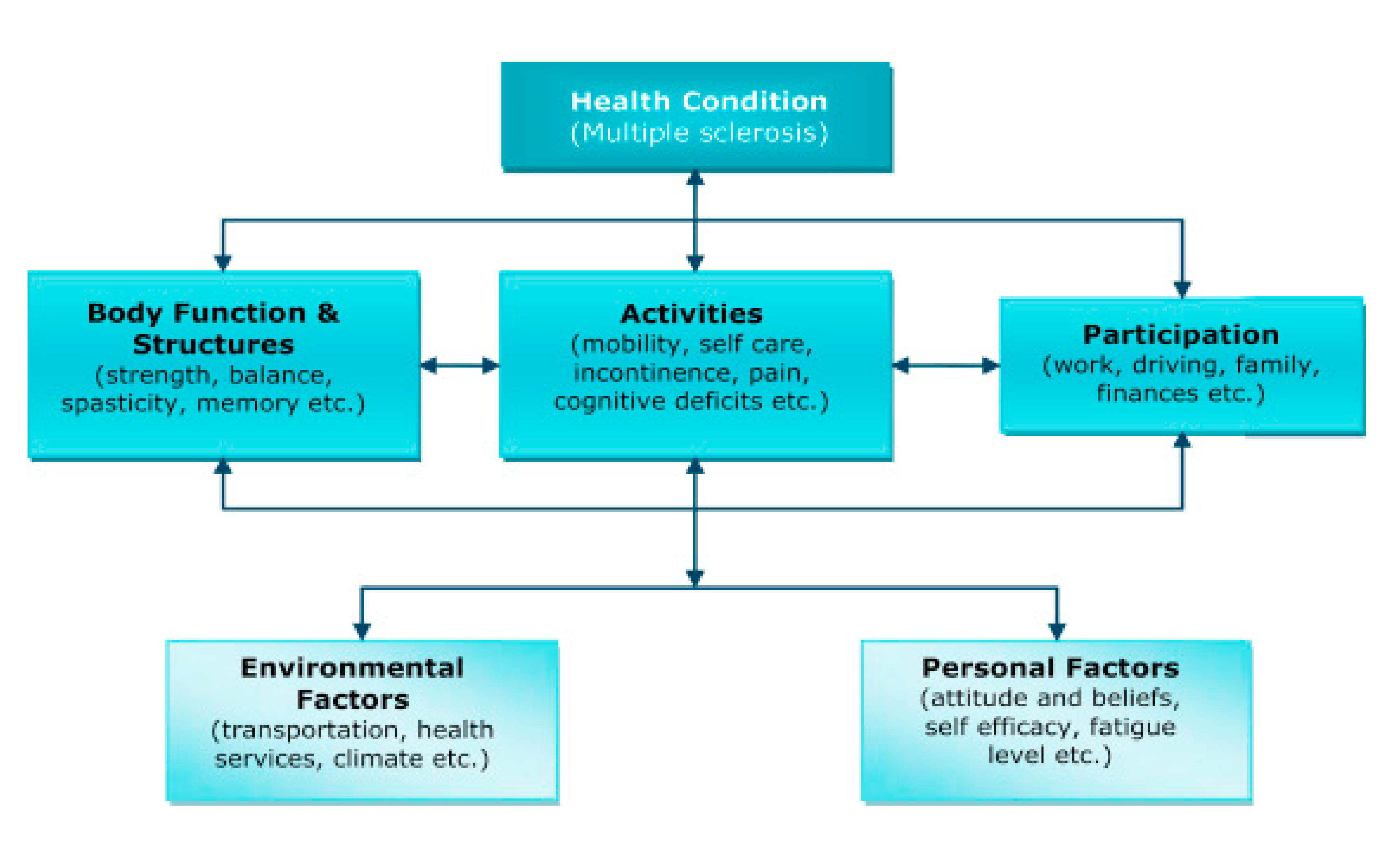Book an Appointment
Call Us+91 9319488481Multiple Sclerosis (MS) is a condition that prevents individuals from walking, balancing, and doing everyday activities. MS is an irreversible disease, but MS rehabilitation is very helpful in keeping individuals mobile and enhancing the quality of life.
Below, we can see how MS treatment, multiple sclerosis therapy, MS rehabilitation, and multiple sclerosis care can make daily life easier for individuals with MS.
 What is Multiple Sclerosis Rehabilitation?
What is Multiple Sclerosis Rehabilitation?Multiple Sclerosis Rehabilitation is a set of treatments and lifestyle modifications that enable MS patients to live actively, independently, and in good health. Since MS involves the brain and spinal cord, rehabilitation addresses improving movement, strength, coordination, and overall health.
The objectives are to enable individuals:
Read Also: Living with Multiple Sclerosis: Cutting-Edge Rehabilitation Techniques
There are numerous MS treatment options that have been employed in order to control symptom gains and avoid disease worsening. Despite the fact that treatments are not yet in the form of cures for MS, it relieves issues with mobility, fatigue, and impairment of muscle power for the patient.
Rehabilitation programs are usually symptom and living situation oriented. The most typical interventions are:
Appropriate MS treatment methods with selection require team health care collaboration.
Read Also: Exploring Multiple Sclerosis Treatment Options in Bangalore: A Comprehensive Guide
Multiple sclerosis treatment focuses on many ways to keep people with MS active and independent. Treatment includes exercises, movement training, and lifestyle changes.
Most Significant Benefits of MS Treatment:
Depending on the symptoms, various forms of multiple sclerosis treatment can be utilized. Ongoing therapy sessions can truly make a significant difference in long-term mobility and comfort.
Read Also: Multiple Sclerosis Treatment in Hyderabad
MS rehabilitation programs are aimed at delivering structured care and assistance to improve the physical and mental well-being of individuals. They incorporate various forms of therapy involving movement, strength, and activities of daily living.
Some Common MS Rehabilitation Programs Include:
MS rehabilitation programs allow the patient to feel more confident in their capability and learn to deal with symptoms in new and improved ways.
Proper multiple sclerosis treatment is important to maintaining symptoms under management as well as an individual's overall sense of well-being. As MS involves many areas of the body, a carefully coordinated care plan might make the difference.
Suggestions for Better MS Care:
Active and productive living with the limitations of MS can be achieved through appropriate MS care.
Family and caregivers also have a role in rehabilitation for multiple sclerosis. They can support and motivate individuals who are suffering from MS in developing independence.
Caregivers Can Do the Following:
An encouraging atmosphere facilitates MS rehabilitation and enables individuals to live a healthier life.
It depends upon how powerful the symptoms are and at what speed individual recovery is felt. Some patients recover quickly in weeks, while others will require extensive therapy.
Rehabilitation activities are largely continuous and adjusted progressively. Constancy is that which shall bring the best outcome. Regular advice with medical professionals makes the rehabilitation process effective.
Multiple Sclerosis Rehabilitation is essential to improve mobility and quality of life. Through structured MS treatment regimens, multiple sclerosis therapy, MS rehabilitation programs, and multiple sclerosis care, individuals can gain strength, remain independent, and overall health is improved.
Though MS may accompany a list of issues, if a proper rehabilitation procedure is followed, it can make one lead an active life and live meaningfully. If you or your loved one has MS, it is advisable to consult a professional and follow a personalized rehabilitation procedure.
Q1. Is Rehabilitation in Multiple Sclerosis of Any Use in Walking Again?
A: Yes, multiple sclerosis rehabilitation involves programs to increase mobility by physical therapy, movement training, and the use of assistive devices. Although full mobility is not regained by all, rehabilitation increases the ability to walk and to move.
Q2. What Are the Most Suitable MS Treatments for Enhancing Mobility?
A: Suitable MS treatments for enhancing mobility are physical therapy, occupational therapy, hydrotherapy, and lifestyle changes. These maintain muscle strength, balance, and coordination.
Q3. How Long Does MS Rehabilitation Take to Show Results?
A: The duration of time differs with individuals. For some, results are seen in weeks, whereas for others, therapy is needed on a constant basis for months or even years. Consistency is the word when it comes to long-term improvement.
Q4. Can Family Members Assist with MS Rehabilitation?
A: Yes! Caregivers and family members are also important by promoting exercises, helping with daily activities, and giving emotional support. Their participation increases the effectiveness of rehabilitation.
Q5. What Are the Advantages of Hydrotherapy for MS Patients?
A: Hydrotherapy (water therapy) decreases muscle stiffness, enhances movement, and reduces stress on joints. It is an excellent low-impact exercise for MS patients.
Q6. Are Assistive Devices Needed for MS Rehabilitation?
A: Not all persons with MS require assistive equipment, but a cane, braces, or wheelchair can enhance independence and mobility in individuals with great movement impairment.
Q7. Does MS Rehabilitation help in Fatigue and Pain?
A: Yes! Part of multiple sclerosis therapy is using methods to manage fatigue, eliminate pain, and enhance energy through individualized exercise and lifestyle modification.
Q8. Is Multiple Sclerosis Rehabilitation an MS Cure?
A: No, MS rehabilitation does not heal the disease, but it is able to control symptoms, enhance mobility, and improve quality of life for people who have MS.